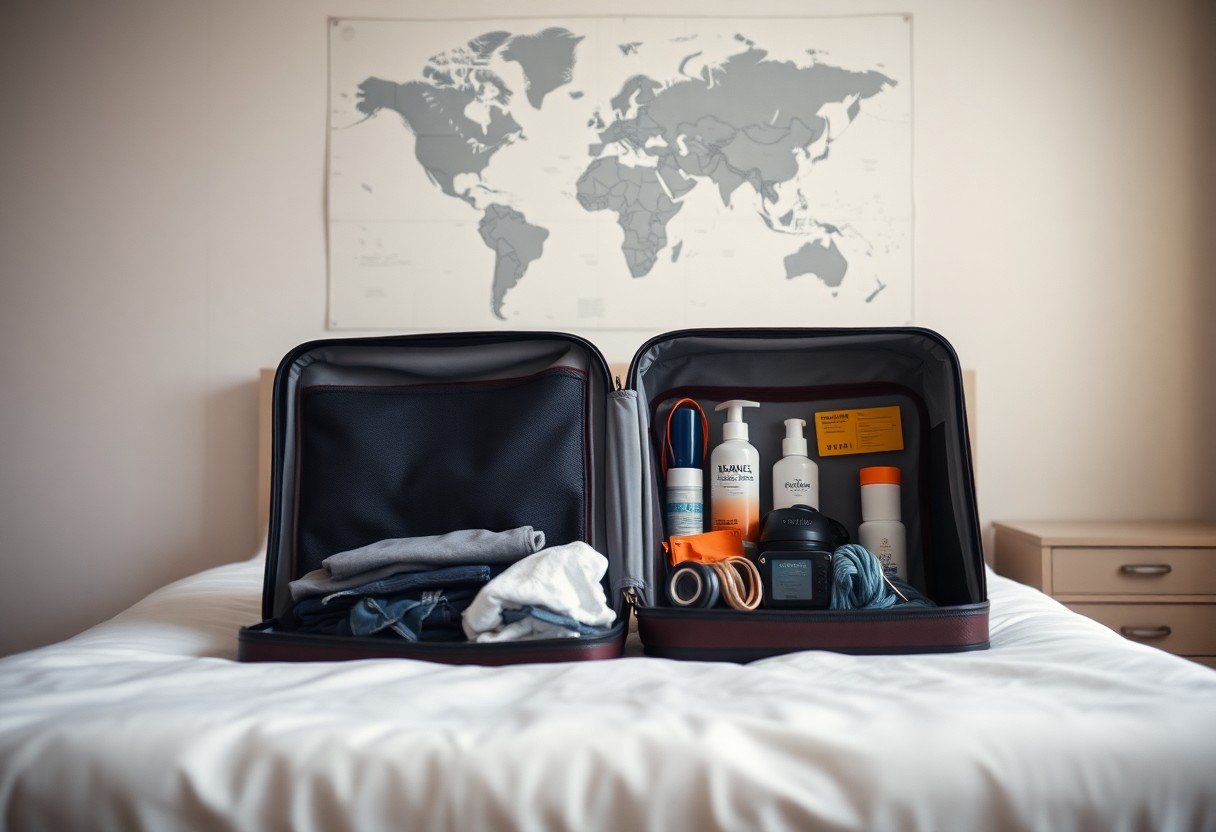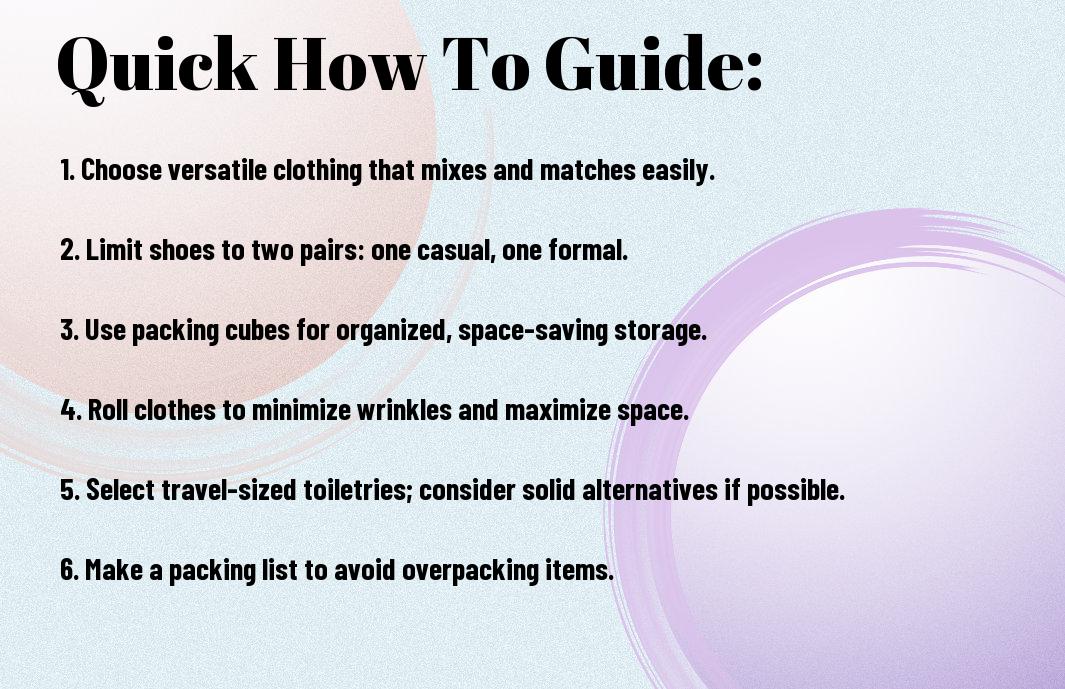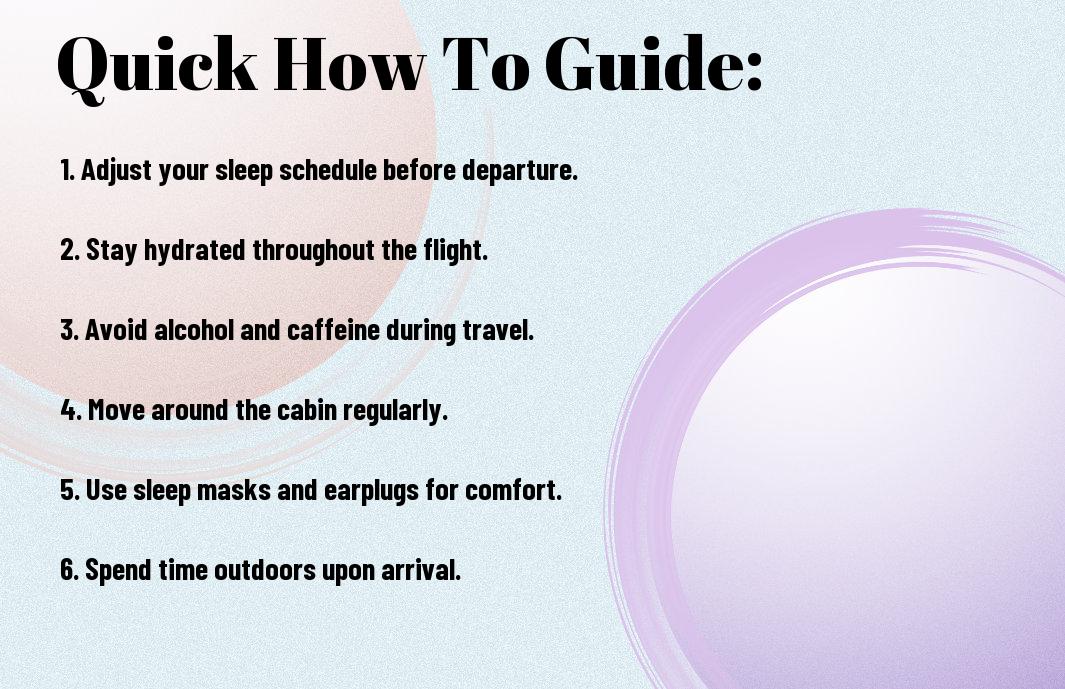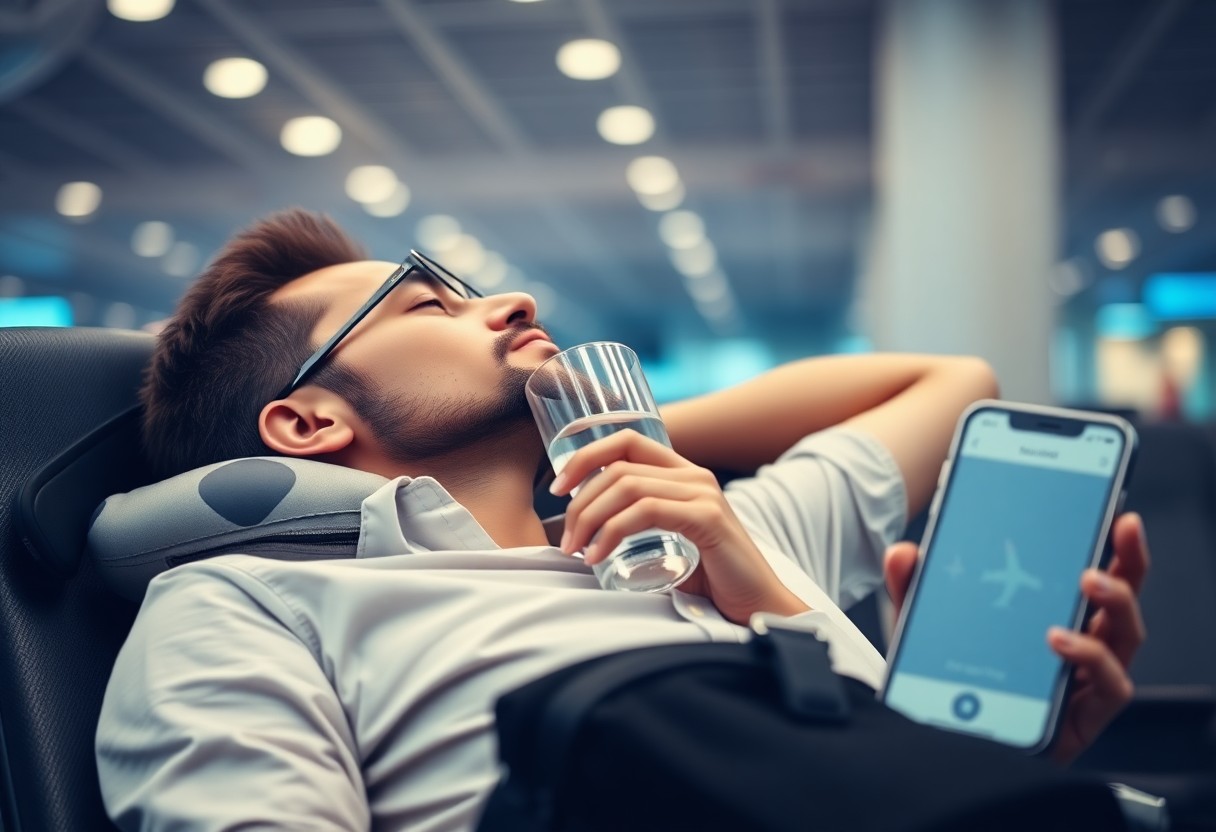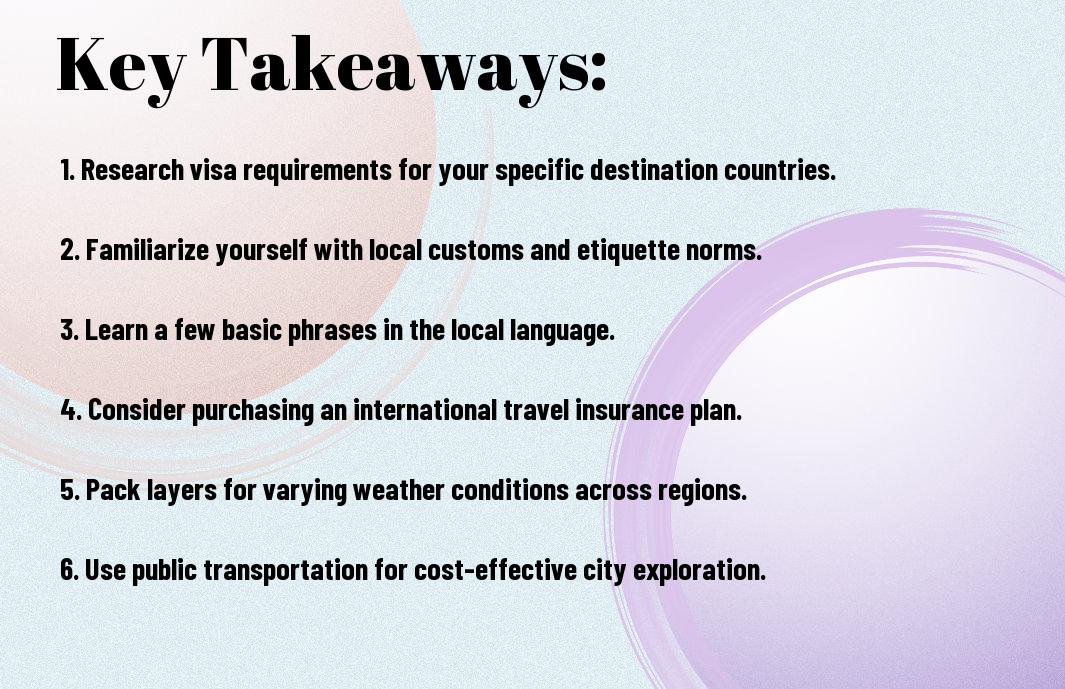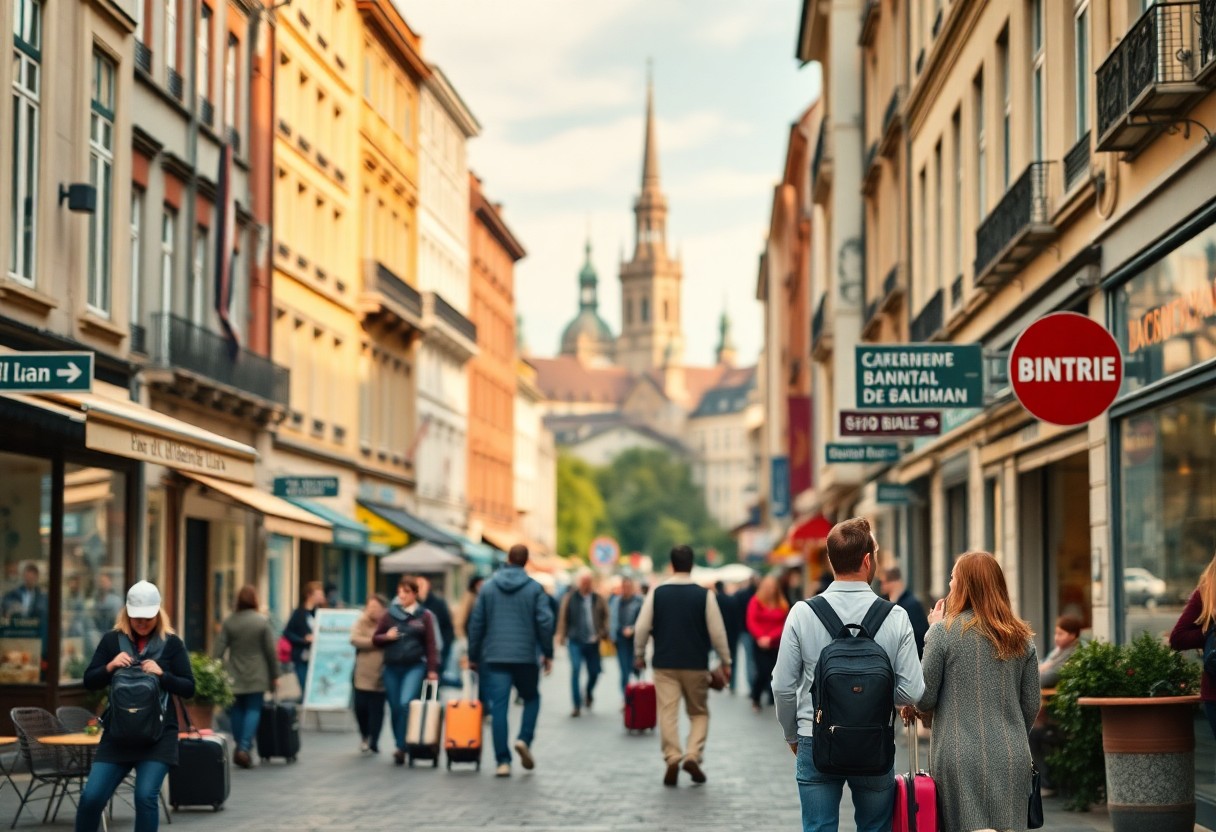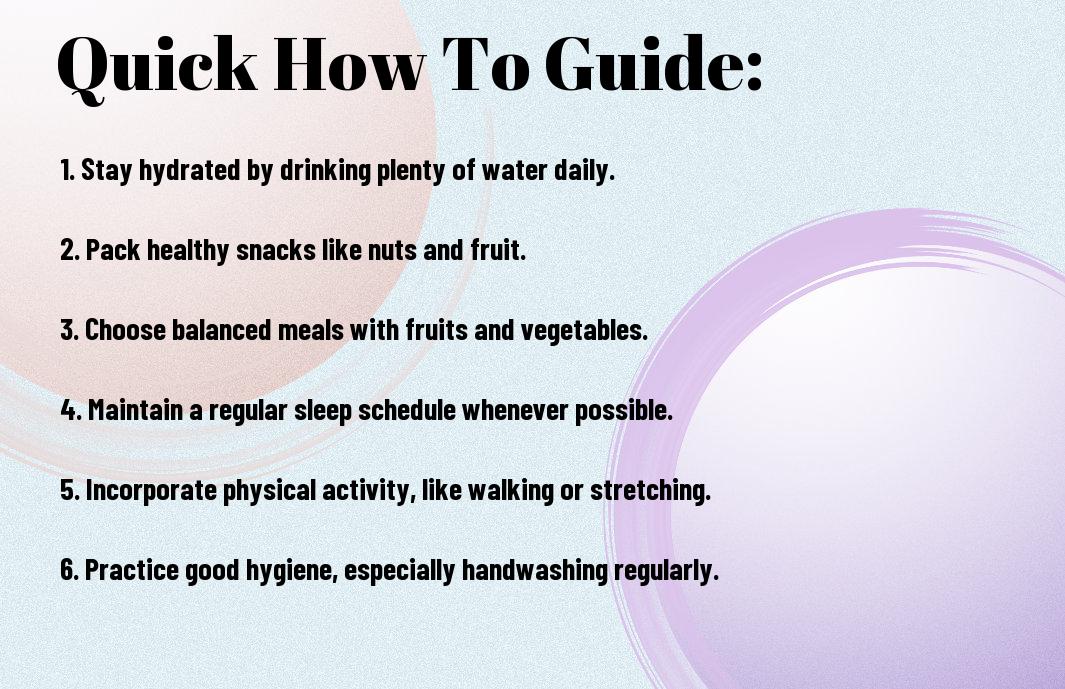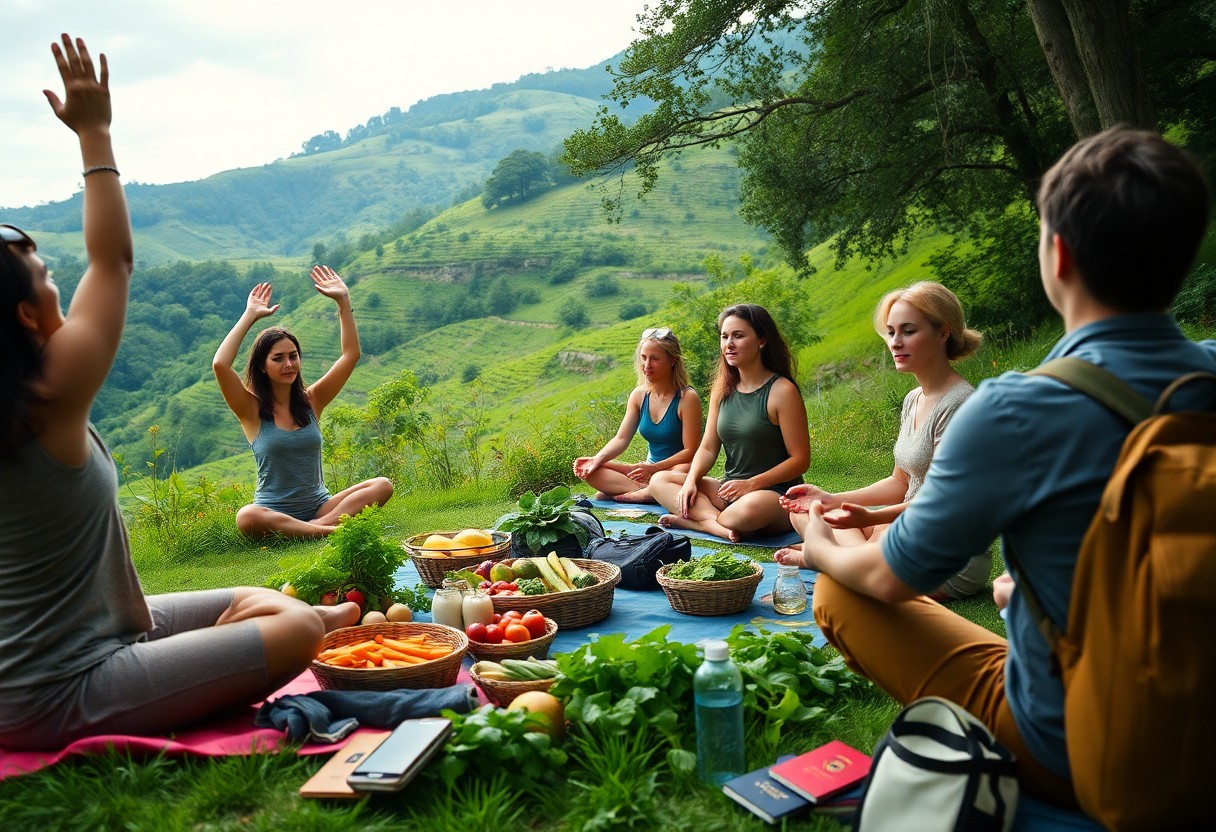Just because you’re jetting off to explore new cultures and stunning locales doesn’t mean you shouldn’t prioritize your safety. By taking proactive steps, you can ensure a smooth and secure journey as you navigate unfamiliar environments. These 10 necessary tips will equip you with the knowledge and strategies you need to protect yourself, your belongings, and your peace of mind while traveling internationally. Let’s look into how you can make your trip enjoyable and worry-free.
Key Takeaways:
- Research your destination: Understand local customs, laws, and cultural norms before arriving.
- Travel insurance is important: Protect yourself against unexpected events such as cancellations or medical emergencies.
- Secure your belongings: Use hotel safes, and be aware of your surroundings to prevent theft.
- Stay connected: Keep loved ones informed about your itinerary and check in regularly.
- Health precautions: Consult a healthcare professional for vaccinations and health guidelines tailored to your destination.

Research Your Destination
While planning your international trip, it’s vital to research your destination thoroughly. Understanding local customs, laws, and health guidelines ensures a smoother experience. For U.S. citizens, check out the U.S. Travelers’ Top Ten Travel Tips for valuable insights.
Local Customs and Laws
Laws vary significantly from country to country. Familiarize yourself with the local legislation including visa requirements, driving laws, and cultural expectations, as ignorance may lead to unintended issues.
Health and Safety Guidelines
There’s no substitute for understanding health and safety guidelines specific to your travel destination. Each location may have unique health risks, vaccination requirements, or general safety advice that you should follow.
It’s wise to check for any health advisories or recommended vaccinations ahead of time. As you prepare, consider packing a basic first aid kit and familiarize yourself with local medical facilities. Stay updated on any travel restrictions or safety alerts that may arise during your journey to ensure you remain safe and healthy.
Keep Important Documents Secure
Some of the most critical aspects of safe international travel involve keeping your important documents safe and secure. Your passport, travel insurance, and other identification should be organized and protected against theft or damage. Consider using a money belt or concealed pouch to keep these items close to your body, especially in crowded places where pickpockets may be present.
Use Waterproof Pouches
Little did you know that waterproof pouches can be a game-changer for safeguarding your important documents. Whether you’re caught in unexpected weather or enjoying a day at the beach, these pouches offer an extra layer of protection, ensuring your passport, tickets, and money remain dry and intact.
Keep Copies Online
You should also keep digital copies of your important documents stored securely online. This can be done through cloud storage services that offer encryption and access control, allowing you to retrieve them even if your physical copies are lost or stolen.
You can take this a step further by creating an organized folder in your cloud storage dedicated solely to travel documents. Scan your passport, visas, insurance policies, and any other necessary paperwork, and upload these files to ensure easy access whenever needed. Additionally, share this folder with a trusted friend or family member who could assist you in case of an emergency. Keeping everything organized online adds an necessary layer of security, allowing you to focus on enjoying your trip without unnecessary worry.
Purchase Travel Insurance
Not having travel insurance can turn a minor inconvenience into a significant financial burden during your trip. Unexpected incidents like medical emergencies, trip cancellations, or lost luggage can happen anywhere, and having the right coverage can provide you with peace of mind. Invest in a comprehensive travel insurance policy that suits your specific needs to ensure you are protected from potential risks while traveling internationally.
Coverage for Emergencies
An effective travel insurance policy offers coverage for various emergencies, from medical emergencies to trip interruptions. With this type of insurance, you can ensure that if you encounter an unexpected illness or injury, you have access to necessary medical services without the worry of exorbitant out-of-pocket costs. Your policy helps cover medical expenses incurred while abroad, allowing you to focus on recovery rather than finances.
Review Policy Details
On the other hand, it is crucial to carefully review your travel insurance policy details before purchasing. Each policy can vary widely in terms of coverage limits, exclusions, and specific conditions. Take the time to understand what is included in your plan, such as trip cancellation, medical coverage, or baggage loss. Doing so ensures that you will have the protection you need in the event of an unexpected situation.
A well-reviewed policy can make the difference between adequate assistance and being left in a lurch during your travels. Pay close attention to key aspects, such as deductibles, reimbursement processes, and any restrictions on pre-existing conditions. Additionally, consider the insurance provider’s customer service reputation, which can be vital when seeking help during emergencies. By familiarizing yourself with these details, you will empower yourself with the knowledge necessary to navigate potential mishaps effectively while traveling abroad.
Register with Embassies
Once again, registering with your country’s embassy before traveling internationally is a vital step in ensuring your safety. This process allows your government to keep track of your whereabouts, facilitating communication and assistance in case of emergencies or natural disasters. Providing your travel itinerary and contact information can be invaluable during unforeseen events, ensuring you receive timely support while abroad.
Contact Information Updates
Clearly, keeping your contact information updated with the embassy is crucial. Changes in your travel plans, such as new accommodations or extended stays, should be communicated to ensure that the embassy can reach you if needed. Regular updates help maintain accurate records and enable quick assistance in emergencies.
Emergency Assistance Access
On the topic of emergency assistance, being registered with your embassy provides you with direct access to important resources and support when you need it most.
With this registration, you can access vital resources, including guidance on local laws and customs, assistance in navigating medical emergencies, and support in case of detainment or lost passports. Moreover, embassies often provide valuable information regarding natural disasters or civil unrest, equipping you with the knowledge to make informed decisions during your travels. Ensuring you’re registered enhances not only your safety but also your peace of mind when exploring new destinations.
Stay Aware of Surroundings
All travelers should prioritize situational awareness while exploring new destinations. Being attuned to your surroundings helps you identify potential hazards and navigate unfamiliar environments confidently. Keep an eye on who and what is around you, especially in crowded places. Pay attention to changes in atmosphere, such as people’s behavior or the general environment, which can be indicators of safety or danger. Staying aware means you can react appropriately to unforeseen circumstances and ensure your safety during international travels.
Trust Your Instincts
Even when you feel safe, it’s imperative to trust your instincts. If something doesn’t feel right, don’t hesitate to remove yourself from the situation. Your gut feelings often hold valuable insights about your safety. When exploring new areas, be mindful of your intuition and let it guide your decision-making. Ignoring your instincts can lead to uncomfortable or potentially dangerous encounters, so always listen to that inner voice about what feels safe or suspicious.
Avoid Isolated Areas
An important aspect of staying safe is to avoid isolated areas, especially when exploring new cities. Stick to well-populated places, particularly at night, as deserted streets or hidden alleys can increase vulnerability to crime or accidents. When venturing out, keep to well-lit and frequented paths, as familiarity and visibility bring a layer of safety to your travels.
Isolated areas can leave you feeling exposed and more susceptible to risks. In unfamiliar settings, it’s best to steer clear of empty streets, abandoned buildings, or secluded parks, which can be breeding grounds for crime or unpleasant experiences. Opt for busy markets, main roads, and populated attractions where you are less likely to encounter trouble. If you find yourself in a remote area, remain vigilant and prepare to leave the space quickly if you sense danger.
Use Reputable Transportation
Many travelers overlook the importance of using reliable transportation options when exploring a new country. Choosing reputable transportation enhances your safety and ensures a smoother travel experience. Opt for official taxis, well-known rideshare apps, or recommended shuttle services, especially at airports and train stations. These options often have safety protocols in place, reducing the risk of fraud or unsafe conditions while you navigate unfamiliar surroundings.
Book Trusted Services
While planning your trip, ensure that you book transportation services from recognized companies with a proven track record. This involves using official websites or trusted travel apps that guarantee security and availability. Avoid the temptation to go with unverified local services, as they may not adhere to safety standards, putting you at risk during your travels.
Check Reviews and Ratings
The best way to gauge the reliability of transportation services is to check reviews and ratings from previous travelers. Look for feedback on platforms such as Google, TripAdvisor, or specialized travel forums to evaluate the experiences of others. These insights will provide you with a clearer picture of what to expect and help you make informed decisions.
Trusted reviews offer invaluable information about the quality and safety of the transportation options you are considering. Pay attention to comments regarding the punctuality, cleanliness, and professionalism of drivers, as well as any red flags mentioned by other travelers. This background research can save you from potential hassles during your trip and ensure that your transportation choices enhance your overall travel experience.
Keep Valuables Concealed
Your valuables are prime targets for thieves while traveling. Keeping your belongings out of sight not only protects them but minimizes risk. Utilize hidden pockets within your clothing and sturdy bags to maintain privacy. Avoid openly displaying cash, electronics, or other items that may attract unwanted attention, especially in crowded areas or tourist spots.
Use Anti-Theft Bags
On your trip, consider investing in anti-theft bags that offer extra security features. These bags often include lockable zippers, cut-resistant straps, and RFID-blocking technology to protect your personal information. Such measures provide peace of mind, allowing you to focus on enjoying your travels without worrying about pickpockets or theft.
Avoid Flashy Jewelry
Valuables like flashy jewelry can draw unnecessary attention while you’re exploring new places. When you flaunt expensive pieces, you become a noticeable target for thieves. Opt for discreet accessories or leave valuable items at home. This not only reduces the likelihood of theft but also lets you blend in better with local populations.
Flashy jewelry, especially pieces that are eye-catching or expensive, can signal wealth to those around you. In unfamiliar environments, this can be particularly risky, as it makes you more vulnerable to theft. It’s advisable to choose simpler, understated accessories that won’t attract attention. This approach allows you to enjoy your travels freely while keeping potential threats at bay.

Limit Alcohol Consumption
Now that you are preparing for your international adventure, it’s crucial to keep your alcohol consumption in check. While enjoying a local drink can be an enjoyable part of your trip, excessive alcohol can impair your judgment, affect your personal safety, and impact your travel experience. Aim to savor responsibly, keeping your wits about you to fully embrace the stunning cultures and environments you will encounter.
Know Your Limits
Limits should be set based on your understanding of how alcohol affects you individually. Whether you’re at a festive gathering or relaxing at a bar, recognize what feels acceptable for you. Being aware of these boundaries helps ensure you stay alert and aware, maximizing your ability to navigate unfamiliar surroundings.
Stay in Safe Environments
An important aspect of limiting alcohol consumption is to choose safe environments for your social outings. Opt for well-reviewed bars and restaurants in busy areas, and avoid isolated places that don’t seem secure. Surround yourself with people you trust and stay where you feel comfortable; your safety should always come first.
Environments that promote safety often contribute to a more enjoyable experience. When you select venues known for their hospitality and security, you create an atmosphere where you can unwind without fear. Evaluate surroundings for their lighting, crowd dynamics, and any security presence, as well as the general reputation of the area. This attentiveness can enhance your travel experience while helping ensure your well-being.
Stay Connected
Keep communication lines open while traveling internationally. Use your phone or other devices to stay in touch with family and friends back home. Consider purchasing a local SIM card or an international plan to avoid high roaming fees, ensuring you can reach out for assistance or share experiences easily. Having an accessible means of communication infuses confidence into your travel adventures.
Share Travel Itineraries
Stay safe by sharing your travel itineraries with trusted friends or family. Provide them with details such as your flight information, accommodation addresses, and planned activities. This serves as a handy reference in case of emergencies and allows someone to know where you are at all times, ensuring peace of mind for both you and your loved ones.
Use Mobile Apps
Share useful travel apps that can enhance your experience and facilitate safety. Mobile apps for navigation, language translation, and emergency contacts make it easier for you to explore new places confidently. These tools can also help you stay informed about local customs, health guidelines, and emergency response resources when needed. Utilize applicable apps to streamline your travel and connection to those back home.
Mobile apps can serve as your lifeline while traveling. From keeping track of your itinerary to finding local services, these tools simplify your experience abroad. Navigation apps like Google Maps help you find your way in unfamiliar areas, while translation apps assist you in communicating with locals. Additionally, safety apps can alert you to nearby emergencies or provide information on local health facilities. These resources can empower you to embrace your travel adventures without compromising your safety.
Learn Basic Local Language
After deciding on your travel destination, taking the time to learn the basics of the local language can greatly enhance your experience. Familiarizing yourself with common phrases can help you interact more effectively with locals, navigate unfamiliar environments, and show appreciation for their culture. Even small attempts at speaking the language can break down barriers and lead to more meaningful connections during your journey.
Key Phrases Helpful
Helpful phrases such as “hello,” “thank you,” and “please” can go a long way in making your interactions smoother and more enjoyable. Having a few important expressions up your sleeve will not only assist you in daily situations but also demonstrate your respect for the local culture. Consider carrying a phrasebook or downloading a language app to facilitate your learning experience.
Show Respect to Locals
Language is an expression of culture, and trying to communicate in the local tongue shows your respect for the people and their traditions. Engaging in their language highlights your willingness to immerse yourself in their world, making locals more receptive and warm towards you. This simple effort fosters better interactions and can enrich your travel experiences significantly.
Any effort you make to communicate in the local language can create a positive atmosphere. Locals often appreciate when travelers step out of their comfort zones to speak their language, even if it’s just a word or two. This respect can lead to friendly exchanges, valuable recommendations, and a deeper connection to the culture. As you travel, aim to embrace the local vernacular, as it opens doors to authentic experiences and lasting memories.
To wrap up
From above, you can see that safe international travel relies on thorough preparation and awareness of your surroundings. By following these ten necessary tips, you can enhance your safety while exploring new destinations. Ensure you have reliable travel insurance, stay informed about local customs, and keep important documents secure. Embrace new experiences with confidence while prioritizing your well-being. Safe travels await you when you’ve equipped yourself with the right knowledge!
Q: What are some important preparations to make before traveling internationally?
A: Before you begin on your international journey, it’s important to do thorough research on your destination. This includes understanding the local customs, laws, and health regulations related to COVID-19 or other diseases. Additionally, ensure your passport is valid for at least six months beyond your planned departure date and apply for any necessary visas. Consider purchasing travel insurance that covers medical emergencies and unexpected trip cancellations. It’s also a good idea to inform your bank of your travel plans, so your credit and debit cards do not get flagged for suspicious activity.
Q: How can I keep my personal belongings safe while traveling abroad?
A: Keeping your belongings safe during international travel involves several strategies. Start by using a secure, anti-theft backpack or bag that has lockable zippers and RFID-blocking compartments. Always be aware of your surroundings, especially in crowded areas, and avoid displaying high-value items like jewelry or expensive electronics. When possible, use hotel safes to store your passport, extra cash, and valuable items. Make digital copies of important documents and store them online or in a secure location, so you can access them if your physical copies are lost or stolen.
Q: What steps can I take in case of an emergency while traveling internationally?
A: In case of an emergency while traveling, it is important to remain calm and have a plan in place. First, familiarize yourself with the local emergency numbers for police, fire, and medical services upon arrival. Keep the contact information for your country’s embassy or consulate handy, as they can assist you in emergencies such as theft or medical issues. Always carry a card with important phone numbers and addresses, including where you are staying. If you encounter a situation where you feel unsafe, trust your instincts and remove yourself from that environment. Have a communication plan with family or friends back home to keep them informed of your whereabouts and any changes to your plans.
